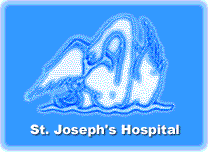breathing problems - babies may need oxygen, suctioning, or a tracheostomy tube to keep them breathing. Others may need respiratory monitors to alert parents.
feeding problems - some babies cannot suck, swallow or keep food down and need to be fed with tubes or through an intravenous line. Others need special diets or positions to correct problems.
heart problems - there are many heart and blood diseases that need special equipment like a cardiac monitor and special drugs.
bowel problems - some babies need constant help for constipation and others have bowel diseases that need surgery like a colostomy.
muscle problems - some babies have muscles that have too much tone or too little. These problems may limit moving.
vision and hearing problems - some babies are blind, have limited vision, or cannot focus; others cannot hear sounds or voices.
developmental problems - some babies may not develop the ability to sit up, roll over, reach out, crawl or walk at the age that most other babies do. They may no smile and socialize with others, recognize their parents or learn to talk at the usual age. These babies may need special exercises to help them strengthen muscles and practice movement for future development.
premature problems - babies who are born very early and who spend many weeks or months in a Neonatal Intensive Care Unit or Special Care Nursery often need extra care when they come home from the hospital.&nbps; Sometimes they have health problems which require treatments for months, years or life.
gene and chromosome problems - some babies are born with an abnormal number of chromosomes, or they may be arranged in the wrong order. Other babies may have an abnormality on one gene, which is a part of a chromosome. These conditions may lead to a developmental delay or a specific physical problem such as seizures or eating problems.
terminal illness - some babies are born with problems that cannot be treated and some may die very soon. If death is expected soon after birth, the baby will probably stay in the hospital. If the baby is expected to live for weeks or months, parents often want to have their baby at home for the time he/she is with them. Many parents say that this is a very rewarding experience.
|

